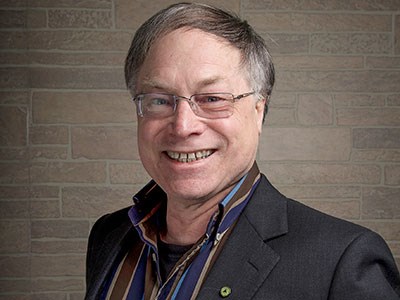My favourite song about avoiding taxes is “The Ballad of Thunder Road” — look it up on YouTube if you are too young to remember Robert Mitchum playing the mountain boy who drove illegal alcohol. The hero is a tax evader with a big car. Naturally, we are on his side in the story. The federal man with his 200 agents is the embodiment of evil state power, and we cheered as they chased the mountain boy and “couldn’t run him down.”
Most of the music about taxes promotes the same anti-tax, anti-state ideology. George Harrison’s “Taxman” promises that “If you drive a car, I'll tax the street,” and “If you take a walk, I'll tax your feet.” Many feel a primal resentment about paying taxes, especially right-wingers and Trump supporters.
That resentment is in the news as I write — a few professionals got a lower rate on some taxes for a few years. Now they are very upset that Prime Minister Justin Trudeau wants to take the privilege away. Psychologists tell us that the more you have the more you think you deserve, and that losing a privilege hurts more than gaining one, so it is not surprising there is a war over this minor tax reform.
As an economist, though, I am more concerned about how to pay for the roads than how to avoid paying for them. I can leave avoidance to the accountants.
You may not realize that the way we pay for roads is totally insane. Municipalities are responsible for roads. Municipalities pay for them out of property taxes. Roads service properties, so that seems to make sense at first glance. But think about the relationship between property taxes and road use.
As a rule, the farther your property is from the centre of a community, the lower your property value and the less property tax you pay. At the same time, the farther you are from the centre of a community the more roads you use. The amount you pay falls slightly as you move away from the centre, but the amount you use rises rapidly. All my friends with homes out in the country are basically free-riders. Too bad for the people who live near the centre of town. Their property taxes mainly pay for roads for other people.
The fact that my friends in the suburbs are picking other people’s pockets doesn’t bother me too much. It isn’t fair, but it has been the law of the land for hundreds of years. What bothers me is that using property taxes to pay for roads distorts communities.
When the property tax is used to subsidize people living farther from town, it encourages wasteful road building. It doubles fuel use and warms the globe. It undermines communities. Our system for paying for roads is both unfair and inefficient. It is bad for cities and bad for future generations.
Of course, no one who lives in the suburbs wants to pay more property tax to cover the extra roads they use. They might even be the politically powerful lawyers and dentists who are screaming about Bill Moreau’s CCCP tax reforms. Pay my way? Never!
From an economist’s point of view, the right way to pay for roads is with a toll on all road use. Make people pay for what they use. Take road building off the property tax. Turn the gas tax into a proper carbon tax. Technically, road tolls are getting easier to implement. Politically, politicians who suggest road tolls might as well stick their heads in a blender.
The surprise is that we will get road tolls without courageous politicians. This year the province will collect over a billion dollars per year in fuel taxes. This revenue will disappear as we move to electric vehicles. The province will then solve its revenue problem by adding a road charge to the fees charged by autonomous vehicles. Since most vehicles will be autonomous, we will then have real road tolls. Hardly anyone will notice that the attack of the electric car will have fixed one of the worst injustices in the whole tax system.
And people will still sing songs about hating the taxman.



